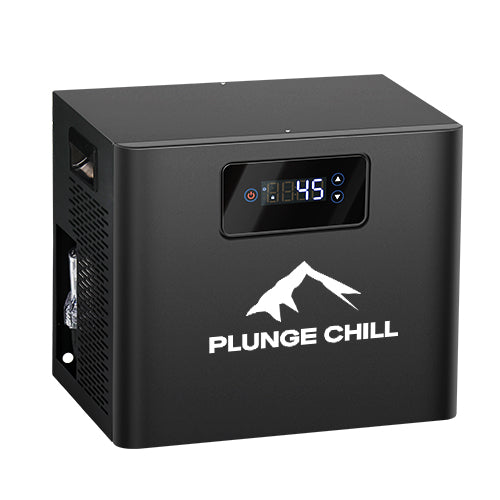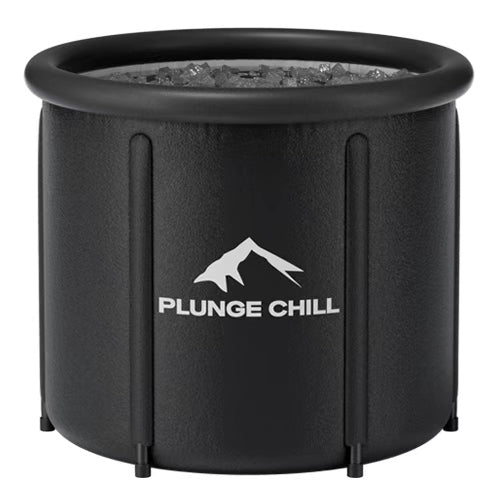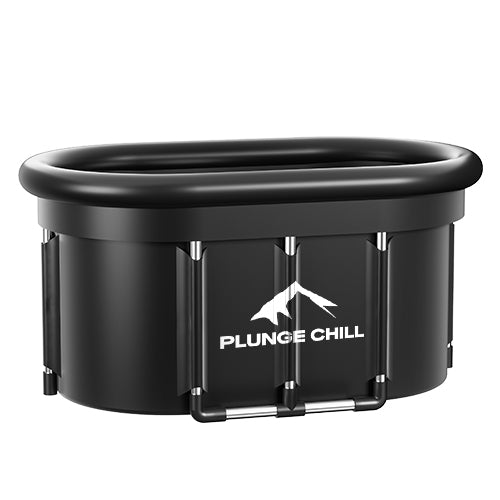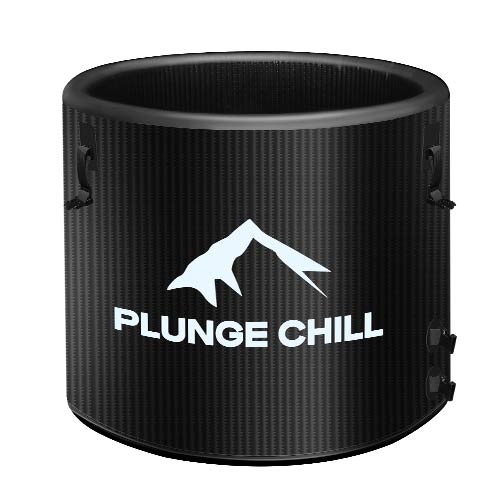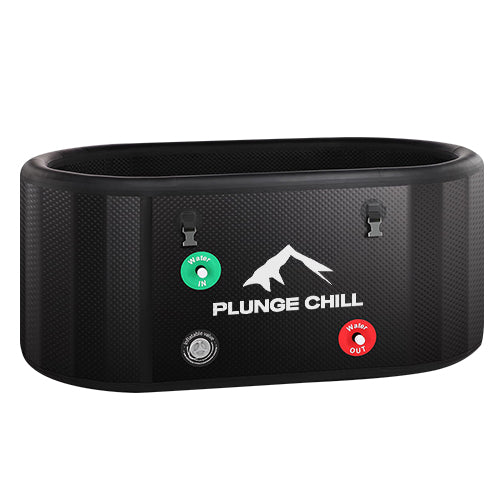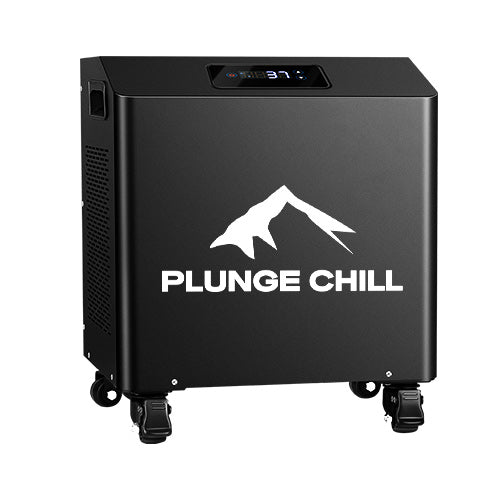Feeling sick is the worst. Your head is foggy, your body aches, and you probably don't want to do anything but hide under a blanket. But if you love taking cold plunges, you might start to wonder: could an ice bath actually help? While the powerful rush of cold water is a great way to get energy on a good day, taking the plunge when you're sick is not so simple.
Before you even think about getting in that chilly water, it's important to know that shocking your body with ice water when it's already working hard to fight a sickness can be risky. This article will break down what's happening when you're sick, how cold therapy affects your body, and give you a clear safety guide so you can make a smart choice.

What Happens to Your Body When You're Sick?
When you catch a cold or the flu, your body starts an all-out war inside. Your immune system, your body's own army, gets ready to fight. It sends out a ton of white blood cells to attack the invading germs.
This internal battle is what causes the symptoms we all hate:
- Swelling: This leads to sore throats, stuffy noses, and muscle aches.
- Tiredness: Fighting off a sickness takes a huge amount of energy, which leaves you feeling drained and wiped out.
In short, being sick puts your whole body under a lot of stress. All of your body's energy is going toward fighting the sickness and helping you get better.
How Does a Cold Plunge Affect a Healthy Body?
On a normal day, a cold plunge is a good kind of stress that can lead to some great health benefits. When your body hits the icy water, it starts a chain reaction in your body:
First, you feel the "cold shock response." Your blood vessels tighten up in a process called vasoconstriction, pulling blood away from your hands and feet and toward your important organs to keep your core warm. This process is a jolt to your blood flow.
At the same time, your nervous system wakes up. Your brain releases a rush of powerful chemicals, including adrenaline for alertness, plus endorphins and dopamine. These create that great feeling of happiness and clear-headedness after a plunge. This is a big reason why cold plunging is known for boosting your mood. For a healthy body, this is a workout that can make you stronger. But for a sick body, it's a completely different story.
Why Some People Think a Cold Plunge Might Help
So, can taking a cold plunge really help you get over a cold faster?
Right now, there aren't many studies that can directly answer this question. However, because ice baths are known to have benefits for healthy people, some think these same benefits might also help people who are sick. The possible benefits people often talk about include:
- Waking Up Your Immune System: Some studies show that being in cold water regularly might increase your number of germ-fighting white blood cells. The idea is that the cold shock wakes up the immune system, keeping it ready to fight. But this is a long-term benefit you get from practice, not a quick fix for when you're already sick.
- Easing Body Aches: Cold therapy is a great way to calm down swelling. The way your blood vessels tighten from the cold can help with swelling and block pain, which might give you some quick relief from sore muscles and joints that come with being sick.
- A Quick Mood Lift: When you're sick, it's easy to feel down and tired. The rush of endorphins from a cold plunge could give you a quick mental lift, making you feel more alert and positive for a little while.
But it's very important to stay careful about these possible benefits: They are just ideas, not proven treatments for a sick body. When you are sick, the situation can be much more complicated, and everyone's body reacts differently.
And for a body that is already fighting an illness, the potential risks of a cold plunge are usually much bigger than these possible short-term rewards. The safest and smartest thing to do is always to follow the advice of a doctor.

When You Should Absolutely Avoid Cold Plunging
Listening to your body is always rule number one. Pushing through a sickness with an intense activity like a cold plunge can really backfire and make you sick longer. Here are the times you must skip the plunge.
To Plunge or Not to Plunge When Sick
- ❌ You have a fever. This is the most important rule. A fever is your body's way of fighting an infection. Plunging into cold water traps heat inside and stops your body from cooling down the right way. This could make your inside body temperature dangerously high, making the fever worse.
- ❌ You are feeling a strain on your heart. Sickness, especially with a fever, already makes your heart work harder. The shock of cold water causes a spike in heart rate and blood pressure, putting extra stress on your heart and blood vessels. For anyone, but especially those with existing heart problems, this combination is a big risk.
- ❌ You have breathing problems like a cough or a lot of congestion. The gasp for air you can't control when you first hit cold water can make breathing even harder and more dangerous if you're already struggling with a cough or a stuffy chest. The cold can also cause your airways to tighten, making your symptoms worse.
- ⚠️ You are extremely tired or weak. Fighting a sickness uses up your energy. A cold plunge is an activity that also takes a lot of energy. Using your limited energy to deal with the cold shock leaves your body with less energy to fight the actual sickness, which could end up making you sick longer.
- ✅ You have very mild symptoms (like the very end of a sniffle) AND you feel you have the energy. If your symptoms are extremely minor, you have no fever, and you feel that your energy levels are close to normal, a very short plunge might be okay. Still, you have to be honest with yourself and be extra careful.
A Simple Safety Checklist: Is It Ever Okay to Plunge?
If you're thinking about a plunge with very mild symptoms, ask yourself these questions first. All answers should be "yes" before you consider it:
Pre-Plunge Safety Check:
- 🟢Temperature normal? No fever allowed.
- 🟢Breathing clear and easy? No cough or congestion.
- 🟢Do I have good energy? Not feeling weak or tired.
- 🟢Is my heart healthy? No heart or circulation issues.
- 🟢Have I asked my doctor? Get medical advice first.
The goal of cold therapy is to make you healthier, not to push yourself when you're already weak.

So having the water at a steady, perfect temperature is important for a safe experience. A good plunge chiller makes sure your water is always at the right temperature, giving you one less thing to worry about. Its built-in pump and filter provide clean, moving water, making the perfect setup for when you're ready to safely get back to your routine.
Listen to Your Body and Your Doctor
In the end, it's all about one simple idea: be smart and listen to your body. When your body tells you it's tired, hot, or uncomfortable, it's telling you directly that it needs to rest. Pushing it too hard can set you back. If you have any ongoing health problems or are ever in doubt, the best thing to do is always to talk with your doctor for advice for your situation.
FAQs
Q1. Can a cold plunge stop a cold before it starts?
While plunging regularly might help make your immune system stronger over time, there is no proof that a single plunge can stop a cold that's coming.
Q2. What if I just have a minor stuffy nose?
If your symptoms are very mild, with no fever or tiredness, a short plunge may be okay. However, pay close attention to how you feel. If the cold makes your stuffy nose feel worse or you feel dizzy, get out right away.
Q3. Will a cold plunge help with a headache from being sick?
The way cold water tightens blood vessels can sometimes help tension headaches. However, if your headache is part of a bigger illness with a fever or a lot of congestion, plunging is not a good idea because it could make you feel worse overall. Safety should always be first.
Q4. Can a sauna, then a cold plunge, help "sweat out" a cold?
This is a popular myth, but it's a very bad idea when you're sick. This extreme hot-to-cold mix puts a huge strain on your heart and can cause you to get very dehydrated. Save this routine for when you are fully healthy.
Q5. Can regular cold plunges help keep me from getting sick in the first place?
This is where the real benefit is. Building a consistent cold plunge habit when you are healthy may help make your immune system stronger over time. For example, a home chiller like the Plunge Chill chiller lets you set and control your temperature, making daily plunges easier and safer. This could help you fight off common sicknesses. It's like exercise for your immune system, not medicine for when you're sick.
